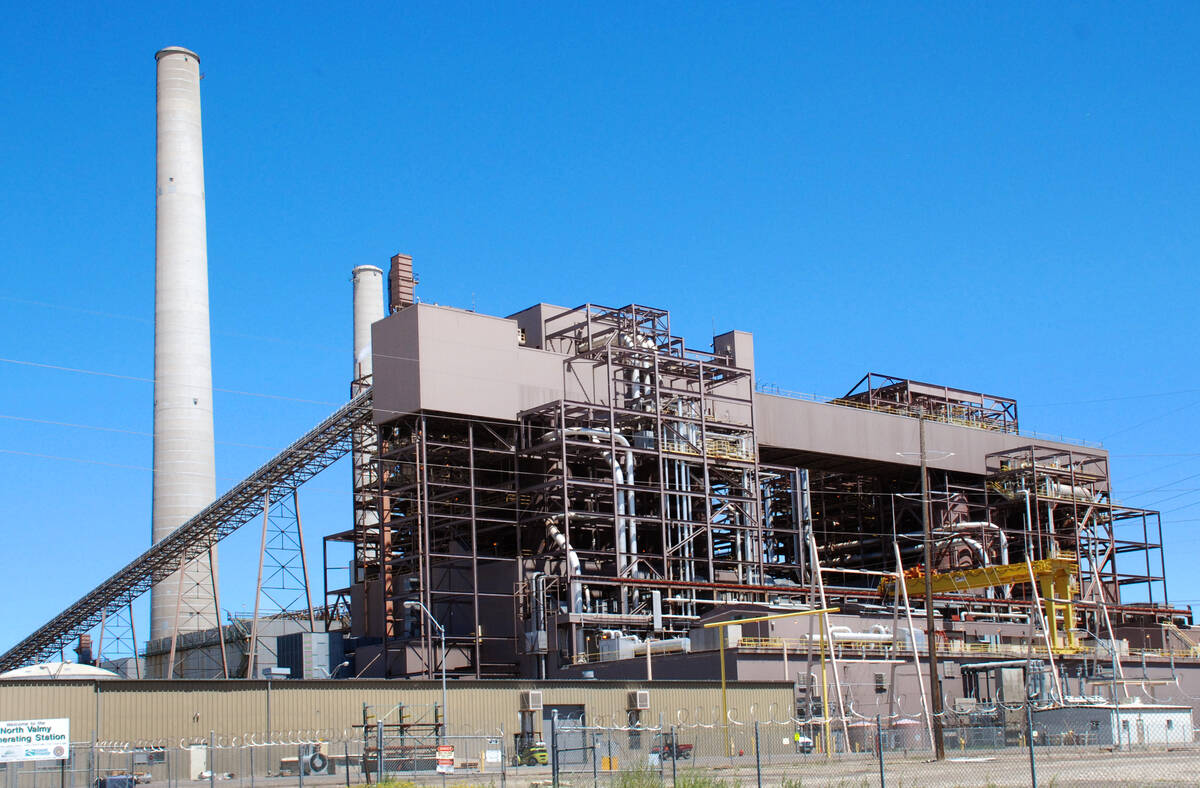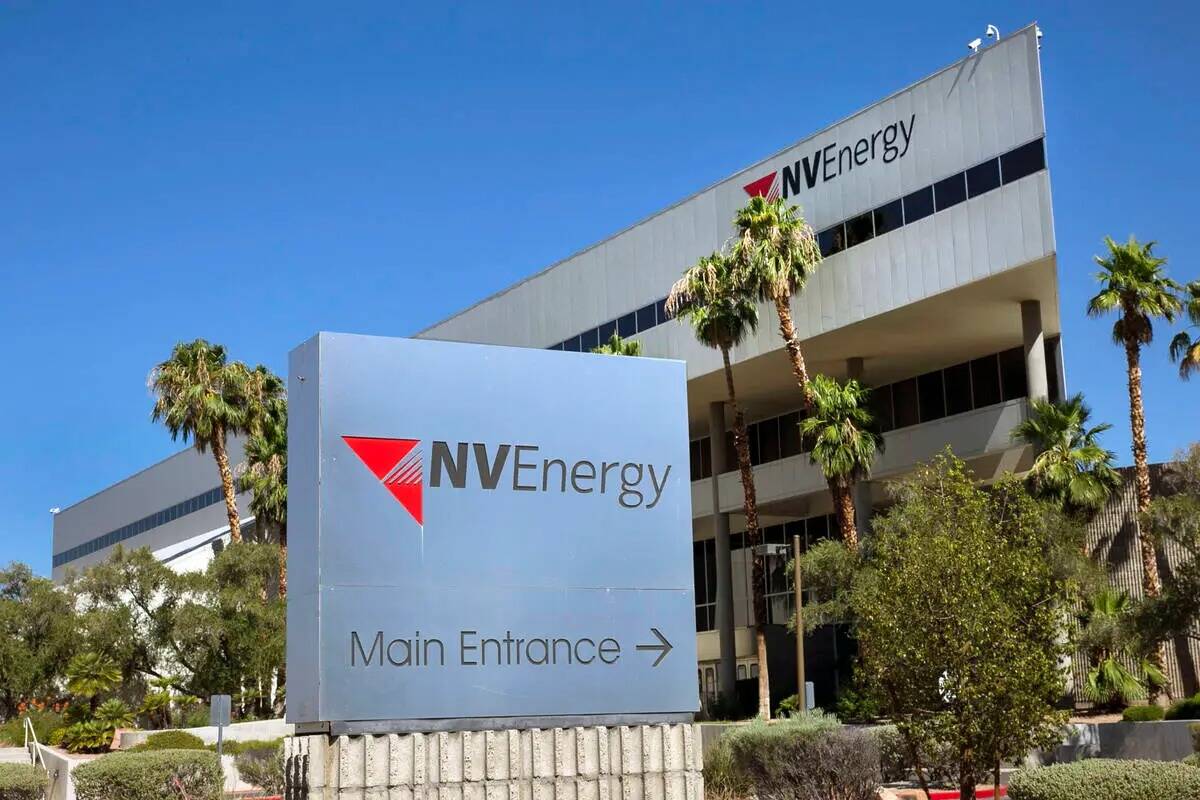Why Nevada’s last coal power plant may survive a little longer
Nevada may need to rely on coal power longer than anticipated after the Public Utilities Commission denied permission to implement a $466 million battery energy storage system that would have helped officials shutter the last coal-generated power plant in the state.
On Friday, the PUC ruled on an amendment to NV Energy’s triennial “Integrated Resource Plan” that sought approval for two geothermal projects in Northern Nevada, several small transmission projects and the battery energy storage system (BESS) at the Valmy power plant that would house 200 megawatts of energy.
The PUC unanimously approved the two geothermal projects, which need $33.5 million in new transmission infrastructure, and six other transmission projects that will cost $11.02 million to build. But it rejected the battery storage system due to the uncertain future of the Valmy plant’s coal and solar operations.
Valmy’s unclear future
NV Energy had planned to add two solar projects — called Hot Pot and Iron Point — to the Valmy plant that would have allowed the company to stop using coal there. The Humboldt County facility, the last coal-generated power plant in the state, is set to be retired in 2025.
But that plan — which would add 600 megawatts of energy and 480 megawatts of energy storage — appears to be hitting roadblocks, according to testimony filed with the PUC. As a result, NV Energy may need to continue using coal at Valmy longer than planned.
“At present, it appears unlikely that the (Hot Pot and Iron Point) projects can move forward as approved by the Commission,” said Shane Pritchard, the NV Energy director of renewable energy and origination, in filed testimony.
The Iron Point solar project was slated to have 250 megawatts of energy and 200 megawatts of storage and was scheduled to be operational in December 2023. The Hot Pot project was set to be operational a year later and bring 350 megawatts of energy and 280 megawatts of storage.
“NV Energy has worked diligently with the developers of Hot Pot and Iron Point to find a path forward that would deliver the projects as approved,” said Katie Nannini, an NV Energy spokeswoman. “However, according to the developers, these projects will no longer be proceeding forward as approved.”
Both projects are being developed by Primergy Solar, which expressed optimism about completing both.
“Primergy Solar is excited about continuing to develop utility-scale projects in Nevada and is successfully advancing the Hot Pot and Iron Point Solar projects,” said Jen Fletcher, a Primergy Solar spokesperson, in an emailed statement.
Primergy Solar did not respond to NV Energy’s statement that it has concerns over the development of the two projects or give reasons why a delay could occur. The PUC order indicates development concerns stem from procurement issues.
“Regarding the Hot Pot and Iron Point projects … NV Energy continues discussions with the developer who, due to recent volatility price increases in the solar and energy storage market, was unable to complete procurement on the schedule and at a price supporting that approved by the Commission,” said the PUC order.
What’s next
NV Energy argued in its filings that since Hot Pot and Iron Point are unlikely to go forward, the Valmy BESS is critical since it can provide energy flexibility while the company sorts the future of power generation at the plant.
The Valmy BESS “is capable of providing greatly needed capacity and local reliability services and helping to integrate intermittent renewable resources, regardless of the future of Iron Point, Hot Pot or the existing Valmy units,” said Pritchard in filed testimony.
The project’s detractors stated that it was an incomplete solution to the energy challenges presented by possible delay or cancellation of the two solar projects.
“NV Energy appears to have just tossed the 200 MW BESS into the mix last minute as a stopgap measure because its two proposed large company owned solar projects, Hot Pot and Iron Point, are either in jeopardy or have failed,” said Paul Maguire, the engineering manager for the PUC’s regulatory staff, in filed testimony.
In its order, the PUC rejected the battery energy storage system because it wouldn’t provide a full solution to not having the two solar projects deployed in time to replace Valmy’s coal generation.
The order stated it would be “premature and unreasonable” to approve the Valmy BESS project.
The commission said it wants more information on the future of the Valmy plant before it rules on future projects for the plant. It directed NV Energy to file a plan that outlines a “complete solution” for the retirement of coal at the Valmy plant and an update on the Hot Pot and Iron Point solar projects.
Nannini said the company “will continue to evaluate all options to ensure the timely retirement of the Valmy coal plant that will deliver a solution to fulfill the energy needs of our Northern Nevada customers.”
Contact Sean Hemmersmeier at shemmersmeier@reviewjournal.com. Follow @seanhemmers34 on Twitter.























